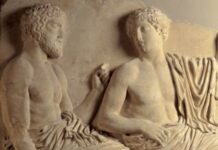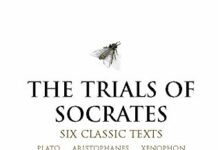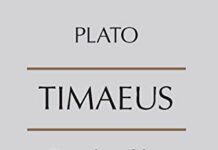
Ebook Info
- Published: 2014
- Number of pages: 197 pages
- Format: MOBI
- File Size: 0.46 MB
- Authors: Plato
Description
What exactly is knowledge?’The Theaetetus is a seminal text in the philosophy of knowledge, and is acknowledged as one of Plato’s finest works. Cast as a conversation between Socrates and a clever but modest student, Theaetetus, it explores one of the key issues in philosophy: what is knowledge? Though no definite answer is reached, the discussion is penetrating and wide-ranging, covering the claims of perception to be knowledge, the theory that all is in motion, and the perennially tempting idea thatknowledge and truth are relative to different individuals or states. The inquirers go on to explore the connection between knowledge and true judgement, and the famous threefold definition of knowledge as justified true belief. Packed with subtle arguments, the dialogue is also a work of literary genius, with anunforgettable portrait of Socrates as a midwife of wisdom.This new edition uses the acclaimed translation by John McDowell. It includes a valuable introduction that locates the work in Plato’s oeuvre, and explains some of the competing interpretations of its overall meaning. The notes elucidate Plato’s arguments and draw connections within the work and with other philosophical discussions.ABOUT THE SERIES: For over 100 years Oxford World’s Classics has made available the widest range of literature from around the globe. Each affordable volume reflects Oxford’s commitment to scholarship, providing the most accurate text plus a wealth of other valuable features, including expert introductions by leading authorities, helpful notes to clarify the text, up-to-date bibliographies for further study, and much more.
User’s Reviews
Reviews from Amazon users which were colected at the time this book was published on the website:
⭐Most of Plato’s works are conversations in which Socrates tries to find a precise definition of some word that people assume they understand. For example, the Euthyphro is about “what is holiness?”, the Charmides is about “what is temperance?”, and the Republic is about “what is justice?” (and justifies why it is proper to be just). The Theaetetus is about “what is knowledge?” To benefit from reading Plato one should carefully choose the translation one uses and I like this one by McDowell. For a thorough study of the dialogue by someone who doesn’t read Attic Greek, Cornford also wrote translations of the Theaetetus and the Sophist that are likely excellent like all Cornford’s works, and there is a celebrated commentary on the Theaetetus by Burnyeat attached to Levett’s translation.Now professional philosophers like to play games about whether knowledge is justified true belief (look up the “Gettier problem”), similar to asking whether some particular action is right, like diverting a train to hit one man and thus save many, rather than working out a coherent view of what it means to know. In the Theaetetus Plato perhaps connects knowledge to his theory of Forms: in 186d, “So knowledge is located, not in our experiences, but in our reasoning about those things we mentioned; because it’s possible, apparently, to grasp being and truth in the latter, but impossible in the former.” A bold reading of this is that the objects of knowledge are not sensible objects but Forms. Plato also gives two metaphors for knowing, the “imprint-receiving piece of wax in our minds” (191) and a “sort of aviary for birds of every kind” (197). Plato certainly does not mean that these are true mechanical models of knowing, but using metaphors like these feels to me like cognitive science and neuroscience.
⭐Theaetetus is a marvellous little book! The dialogue between Socrates, Theaetetus and Theodorus, is about the question, what is knowledge? and takes a more metaphysical approach. Socrates and Theaetetus discuss three definitions of knowledge: knowledge as perception, knowledge as true judgement, and, finally, knowledge as a true judgement plus an account. All three are shown by Socrates to be dubious.Even with the impasse in the discussion, Socrates tells Theaetetus will have benefited from learning what he does not know, and that he may be better able to approach the subject in the future. The conversation ends with Socrates’ announcement that he has to go to court to face a criminal indictment.There are a few nice analogies in the dialogue, first Socrates likens himself to a midwife, helping young men to give birth to knowledge. Second Socrates describes memory as impressions on wax tablets, and lastly the analogy of the mind as an aviary, with birds (or bits of knowledge) caught in the cage, for one to catch and possess in ones hands. Finally the translators introduction and notes are invaluable.A great read, I would highly recommend to anyone interested in Plato, or Classical Greek philosophy!
⭐The text is ancient, and little can be done about its content. The translation however and the whole of this edition are, as usual for this publishing house, excellent.
⭐Clear evidence from the cover that laptops with styli were in use over 2000 years ago. However, one should not judge a book by its cover!
⭐The translation is tough to follow, the book structure itself is quite brilliant. Would recommend this but keep additional resources as well.
Keywords
Free Download Theaetetus (Oxford World’s Classics) 1st Edition in MOBI format
Theaetetus (Oxford World’s Classics) 1st Edition MOBI Free Download
Download Theaetetus (Oxford World’s Classics) 1st Edition 2014 MOBI Free
Theaetetus (Oxford World’s Classics) 1st Edition 2014 MOBI Free Download
Download Theaetetus (Oxford World’s Classics) 1st Edition MOBI
Free Download Ebook Theaetetus (Oxford World’s Classics) 1st Edition




